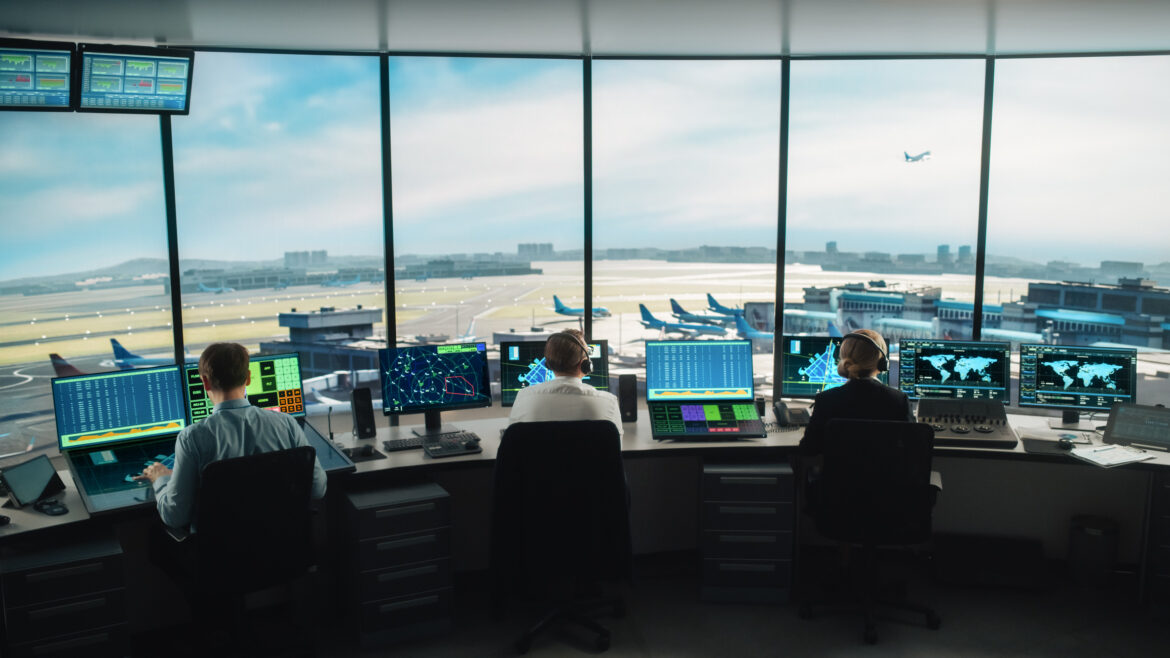Advertiser & Editorial Disclosure: The Bulkhead Seat earns an affiliate commission for anyone approved through the links below. This compensation may impact how and where links appear on this site. We work to provide the best publicly available offers to our readers. We frequently update them, but this site does not include all available offers. Opinions, reviews, analyses & recommendations are the author’s alone, and have not been reviewed, endorsed, or approved by any of these entities.
Air traffic controllers across the United States are voicing deep frustration over a recently announced $10,000 retention bonus. They argue that the payment falls far short of addressing the urgent challenges facing their profession. For many controllers, it also highlights long-standing systemic issues within the Federal Aviation Administration (FAA) rather than solving them.
The retention bonus was introduced for those with perfect attendance as part of an effort to stabilize the workforce and retain experienced controllers, but the reaction from the field has been overwhelmingly critical. Controllers say the one-time payment does little to relieve mounting pressures caused by widespread understaffing, mandatory overtime, and increasingly stressful operating environments.
The National Air Traffic Controllers Association, which represents roughly 20,000 controllers, has repeatedly urged policymakers to focus on comprehensive, sustainable solutions rather than temporary financial incentives. The shortage is neither new nor mild. The FAA is short more than 3,000 controllers compared to authorized staffing levels. This leaves major facilities struggling to maintain safe and efficient operations. The gap has resulted in cascading fatigue, burnout, and higher attrition rates.
Several long-term factors have converged to create the current crisis. A hiring freeze during the 2008 economic downturn created a demographic gap that still strains the system. Meanwhile, training new controllers can take two to four years. Attrition has also increased as stressed-out controllers leave for lower-pressure jobs or opt for early retirement. These staffing deficits have real consequences for travelers. Understaffed control centers have contributed to delays and cancellations. This forces airlines to trim schedules during peak periods. The pressures intensify during busy summer and holiday seasons when controllers often work longer shifts to keep up with record travel demand.
Rather than a one-time bonus, controllers are calling for structural improvements that would make the profession more sustainable and competitive. These include:
- Competitive salary increases
- Better work-life balance
- Accelerated hiring and improved training capacity
- Modernized equipment and facilities
The backlash against the bonus comes as other aviation sectors secure major improvements in pay and working conditions. Pilots, flight attendants, and mechanics have all negotiated substantial raises and bonuses over the past two years as airlines scrambled to rebuild staffing after the pandemic. Some regional airlines have offered six-figure signing bonuses to attract pilots and flight attendants at major carriers have secured significant pay increases. Against this backdrop, controllers view the FAA’s $10,000 gesture as insufficient for a job that forms the backbone of the National Airspace System.
The timing adds to the tension. With the holiday travel season approaching, controllers know the system relies heavily on their expertise and many feel the FAA is leaning on their professionalism rather than meaningfully addressing shortages.

The FAA maintains that the retention bonus is just one part of a broader effort to rebuild staffing levels. The agency points to recent hiring waves that have brought thousands of trainees into the system, though it acknowledges these new entrants will take years to reach full certification. Officials also cite budget constraints and federal pay regulations that limit compensation flexibility compared to private-sector employers. The retention bonus, they say, is intended to offer short-term relief while long-term fixes move through administrative and legislative channels.
For controllers, the debate over the retention bonus reveals a deeper issue: the need for sustained investment in staffing, technology, and working conditions. Without meaningful changes, they warn that the system will continue to rely on overburdened professionals to keep air travel running safely.
Anthony’s Take: As pressure grows and travel demand reaches new heights this holiday, the question remains whether the FAA will enact the long-term reforms controllers argue are essential for the future of aviation safety.
(Image Credits: gorodenkoff via iStock.)
User Generated Content Disclosure: The Bulkhead Seat encourages constructive discussions, comments, and questions. Responses are not provided by or commissioned by any bank advertisers. These responses have not been reviewed, approved, or endorsed by the bank advertiser. It is not the responsibility of the bank advertiser to respond to comments.
Advertiser & Editorial Disclosure: The Bulkhead Seat earns an affiliate commission for anyone approved through the links above This compensation may impact how and where links appear on this site. We work to provide the best publicly available offers to our readers. We frequently update them, but this site does not include all available offers. Opinions, reviews, analyses & recommendations are the author’s alone, and have not been reviewed, endorsed, or approved by any of these entities.

1 comment
It was no where near 776